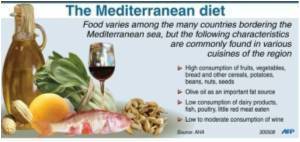Drinking commercially available fruit and vegetable juices or fruit concentrates are not going benefit symptoms of metabolic syndrome (risk factor of type-2 diabetes and heart disease), according to a Yale study.
Fruits and vegetables are known for their high antioxidant polyphenols and vitamins that help prevent many heart diseases and insulin- related problems because of their favorable effects on endothelial function, especially in people with metabolic syndrome.Endothelium is a lining covering the internal surface of blood vessels, heart valves and other body cavities. It acts a selective barrier between the blood vessel lumen and the surrounding tissues allowing the necessary materials in and out of the blood stream and helps maintain vascular homeostasis (internal stability of the circulatory system). A dysfunction in endothelial activity gives rise to a host of cardiovascular problems, such as vascular inflammation and atherosclerosis.
Cost and lack of access are the main barriers to consumption of fresh fruits and vegetables. Taking advantage of this fact, supplement companies are flooding the market with dehydrated fruit and vegetables juice concentrates that claim to have the same benefits.
Therefore, to find out if commercially available dehydrated fruit and vegetable juice concentrates (Juice+) truly benefit consumers with metabolic syndrome, Ather Ali and colleagues from the Yale University School of Medicine, Connecticut, U.S. conducted a randomized, double blind, placebo- controlled clinical trial with three treatment arms:
- Encapsulated juice powder concentrate with added berry powders (Blend 1 Juice+);
- Encapsulated juice powder concentrate without added berry powders (Blend 2 Juice+); and
- Placebo capsules
These individuals were administered to Blend 1, Blend 2, or placebo for 8 weeks where they had to ingest 3 capsules twice daily amounting to 4.5g per day. This was followed by an 8-week washout period with no intervention. By the end of the study all 64 volunteers completed 8 weeks of all the three treatment arms.
Whole fruits and vegetables contain significant amounts of dietary fiber that help prevent or reduce heart disease and improve endothelial function. But the concentrate capsules used in this trial contained minimal fiber. The researchers, thus, suggest that – ‘It is possible that dietary fiber mediates the beneficial effects of fruits and vegetables on endothelial function and cardiovascular risk. Furthermore, fiber in the diet promotes satiety; thus persons adding fruits and vegetables to their routines may be displacing the consumption of other foods that promote weight gain and increase cardiac risk. The small capsules used in this study are unlikely to affect satiety and thus displace the consumption of atherogenic foods’.
Source: http://www.nutritionj.com/content/pdf/1475-2891-10-72.pdf
Source-Medindia














